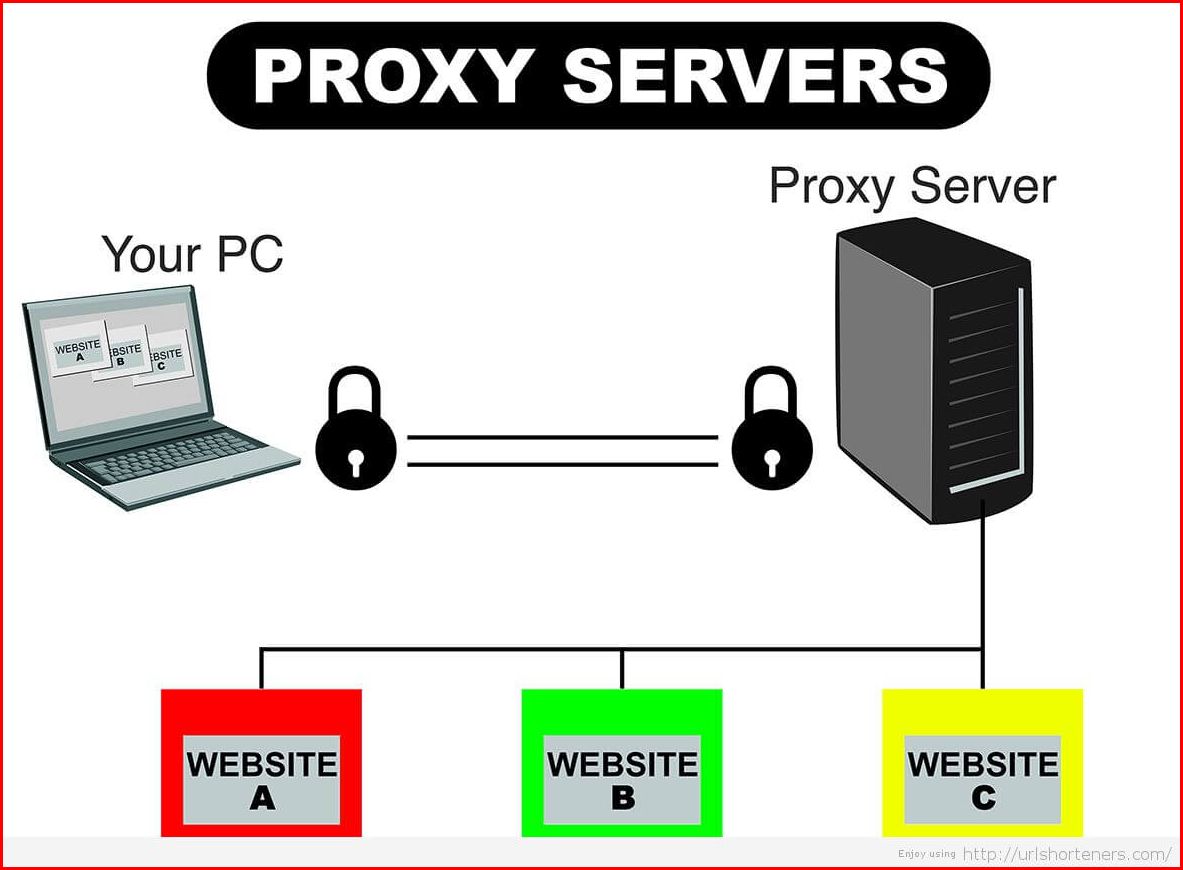In the today's digital landscape, in which our online presence is continually under scrutiny, proxy servers emerge as a potent tool for enhancing privacy and security. Numerous internet users are unaware of what a proxy server is and the way it works, yet its potential to mask online activities and protect sensitive information is priceless. Whether you're concerned about your digital footprint or merely looking for more efficient online access, understanding the benefits of proxy servers can lead to more secure and increased productive internet experiences.
Proxy servers serve as middlemen between your device and the internet, offering multiple advantages such as increased security, anonymity, and better access to geo-restricted content. As you navigate the challenges of the online world, understanding how to leverage these tools can protect your personal information and help you maximize your online potential, whether for personal use, business purposes, or or even gaming. In this article, we'll explore into the advantages of proxy servers and explore how they can enhance your online experience while safeguarding your privacy.
Grasping Proxy Services and How They Work
Proxy servers function as middlemen between a user and the internet, enabling the sharing of data and providing a layer of concealment. When a user sends a query to view a website, the proxy server manages that query and transmits it to the target server. This means that the website detects the proxy's IP address rather the user's, consequently hiding their identity. As Go here , proxy servers can boost online privacy by concealing personal information and browsing habits from possible onlookers.
Besides anonymity, proxy servers come in multiple types, each serving different purposes. An HTTP proxy is tailored for web traffic, while a SOCKS proxy can handle any kind of traffic. Transparent proxies do not typically modify the requests or responses, making them advantageous for network monitoring without user awareness. Grasping these differences helps users pick the suitable type of proxy for their intended purposes, whether it's for casual browsing, professional use, or data collection.
Furthermore, proxy servers can strengthen security by filtering out malicious content and protecting user data. By routing internet traffic through a secure proxy, users can safeguard themselves from digital dangers such as phishing attacks and malware. Additionally, proxies can encrypt data, more securing online interactions. This capability not only helps users preserve privacy but also builds a more secure online environment.
Merits of Proxy Services for Online Security
Proxy solutions offer a crucial layer of security for users exploring the online world. By acting as go-betweens between a person's device and the internet, they mask the user's IP address, making it considerably harder for hackers to monitor online activity or aim at people for malicious actions. This secrecy helps safeguard personal data from being obtained by malicious entities and prevents unwanted surveillance from outside sources. With a proxy server, your true IP address is obscured, which lowering the risk of turning into a mark for cyber threats.
Furthermore, the use of proxy servers can enhance overall network protection for companies. Businesses can enforce strict policies regarding which individuals can access specific resources, thus regulating the information flow that moves through their systems. Additionally, proxies can be arranged to filter out dangerous content and deny access to recognized harmful sites. This capability not only enhances the network's defenses against potential attacks but also preserves sensitive company information from being leaked.
Another major advantage of proxy servers is their capacity to secure internet traffic. Though not all proxies provide this feature, those that do can encrypt data sent between the user and the target server, offering an additional layer of protection against interception. This is especially important when using public internet connections, where data is more susceptible to interception. By ensuring that sensitive information, such as passwords and confidential information, is protected, proxy servers play a vital role in preserving online safety and privacy for individuals in different contexts.
Deciding on the Right Proxy Server for Your Needs
As you selecting a proxy server, it is important to first identify your specific requirements. Evaluate whether you need a proxy for casual browsing, streaming, online gaming, or business tasks like data harvesting. Different types of proxies, such as HTTP, SOCKS, and Transparent proxies, serve different purposes, so comprehending the character of your online activity will help you make an educated decision.
Another crucial consideration is the location and type of proxy you choose. Home proxies provide IPs assigned to genuine homes, which can be beneficial for accessing geo-restricted content and for tasks that require a high level of anonymity. Alternatively, data center proxies often offer faster speeds and are more cost-effective, making them ideal for tasks that focus on performance, like streaming or gaming. Consider your cost considerations as well, since residential proxies generally be more expensive than their data center equivalents.
In conclusion, evaluate the security features of the proxy server you are thinking about. Look for options that provide encryption, protection against IP bans, and a solid track record of maintaining user anonymity. This is particularly essential if you are handling sensitive data or engaging in endeavors that may attract unwanted attention. By aligning your needs with the correct proxy type and security features, you can ensure a effortless and secure online experience.

